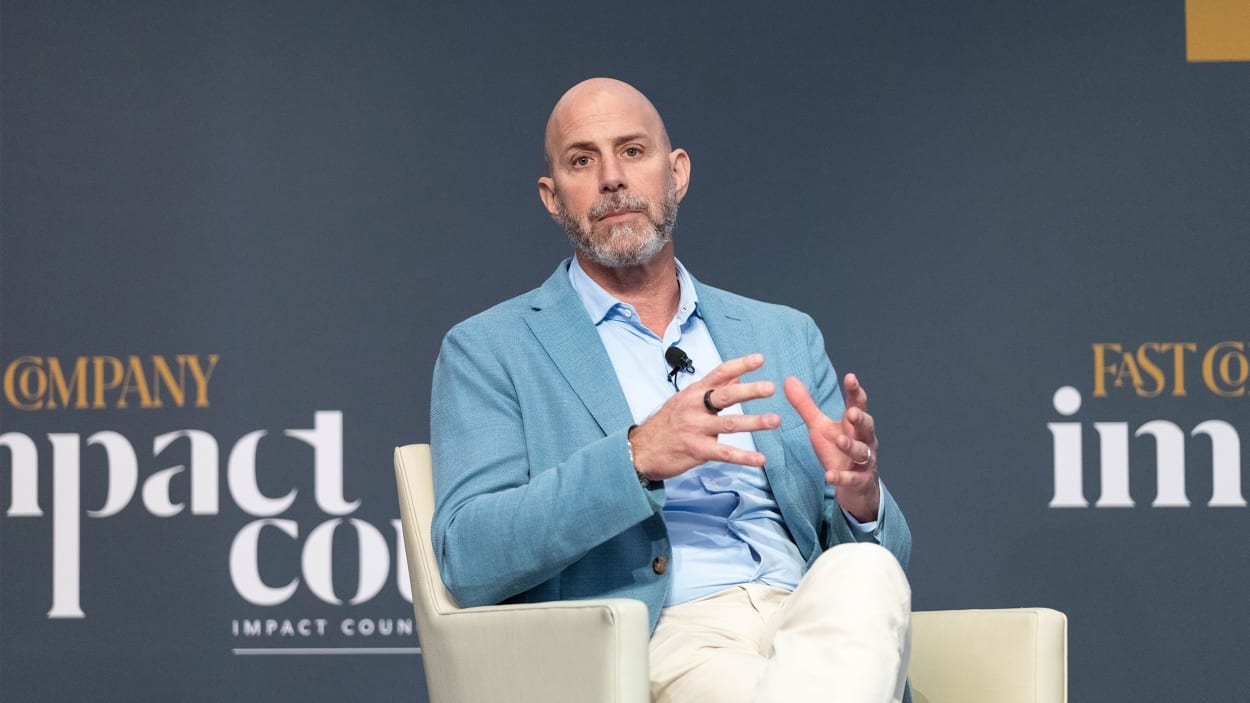Etsy CEO Josh Silverman credits corporate ‘do-gooderism’ for the company’s turnaround
By Sam Becker
“Crafty” is certainly one way to describe Etsy’s turnaround in recent years. And it’s due, in large part, to the company’s broad focus on being a good corporate citizen. That’s according to Etsy CEO Josh Silverman, who was one of several speakers at the most recent Fast Company Impact Council annual meeting.
During his panel, Silverman explained how he helped right the ship at Etsy, a gift and craft marketplace, by leaning into some often-maligned corporate strategies, including an increased focus on lessening the company’s environmental footprint, building diversity among its employee ranks, and beefing up a sense of economic empowerment among its workers and sellers who use the platform.
Etsy went public in 2015, and during the panel, Silverman explained that “it wasn’t going well” and that the company was “underperforming” in a number of ways. That led to the dismissal of former CEO Chad Dickerson; and Silverman, who had been a board member, stepped in to take over as chief executive.
Once in the role, Silverman said that the market’s assessment that Etsy was underperforming because of a focus on being a good corporate citizen was “a darn shame and an important misconception that needed to be corrected.”
“We, at Etsy, believe very much that being a good citizen is super important to being a good business, that those two are mutually reinforcing,” he said.
With that, Silverman made some changes—including reemphasizing how important the idea of corporate “do-gooderism” was to Etsy. That included picking three specific areas to concentrate on: economic empowerment, diversity and inclusion, and environmental sustainability—all three of which also played a role in bolstering Etsy’s financial performance in the subsequent years.
As for how the latter two goals helped the company, Silverman said that a diverse group of employees from different backgrounds and cultures has allowed Etsy to become a more creative and agile company. And in terms of environmental sustainability, “we think there’s a portion of our customer base who really cares about that,” he said. “[If they shop] with us a little more, it funds itself.” It also helps attract and retain employees, who may be passionate about working for an environmentally sustainable company.
By setting hard targets and metrics around those three focus areas, and working toward hitting those targets, Etsy has been able to find success in terms of reaching its financial and social impact goals. “I think the stock was at $10 when I joined, and it’s around $90 now,” he said. In aggregate, it’s led to better outcomes for Etsy’s sellers; around 15% of the company’s staff is from underrepresented groups (up from 8% prior to Silverman’s arrival); and Etsy is making considerable progress toward its sustainability goals.
Silverman finished the panel by discussing the role that rising prices have played in the company’s operations, and how the pandemic may have reshaped consumers’ views of the economy. “In a world where people want to buy, or are able to buy, fewer things, they want those things to mean more,” he said. “We have so many ways that we can produce things super fast and super cheap, arrive at our home, and be in a landfill two minutes later—a very disposable economy.”
“There’s more consciousness that we want to be a part of something that’s really positive,” he added. “I think that Etsy’s really well positioned over the long term to do something genuinely different than what the big mass producers and retailers are doing.”
(29)



